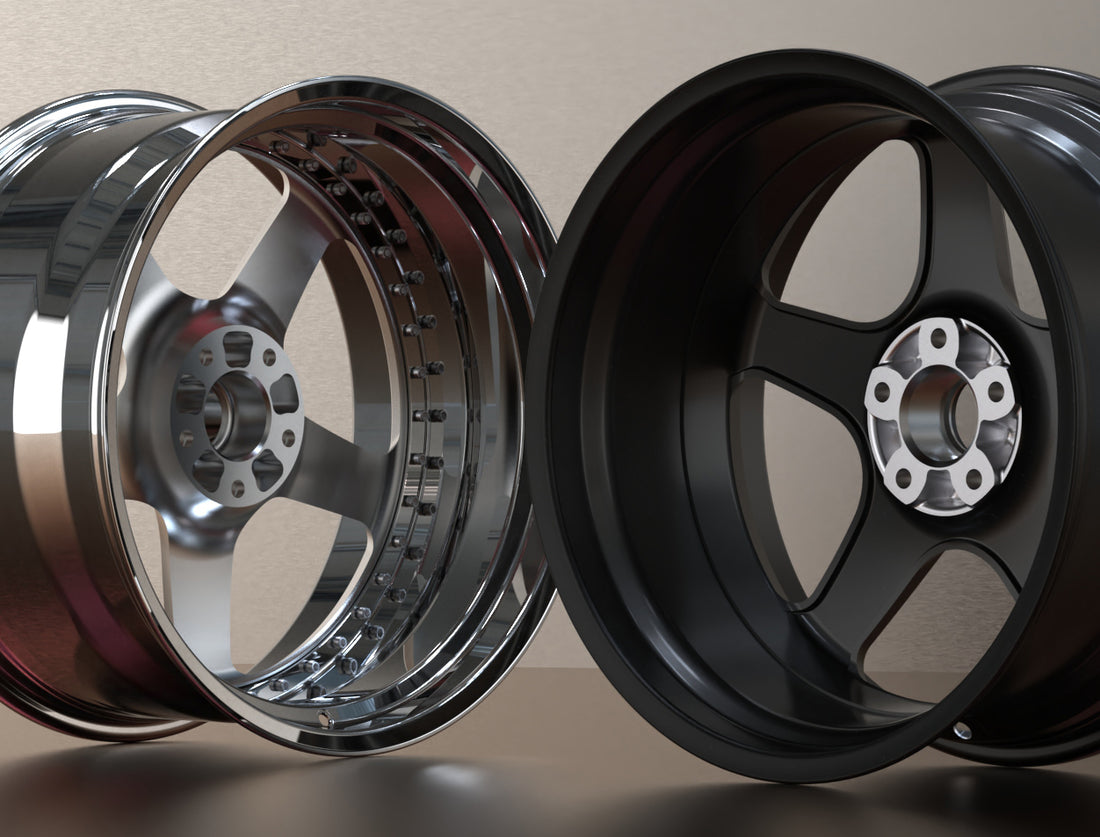
Should You Choose Forged or Cast Wheels for Your Vehicle?
When it comes to selecting the perfect wheels for your vehicle, the choice between forged and cast wheels can significantly impact both performance and aesthetics. Understanding the differences between these two types of wheels is crucial for making an informed decision. Forged wheels, known for their superior strength and lightweight properties, are often favored in high-performance and racing environments. In contrast, cast wheels offer a more cost-effective solution with a wide range of designs suitable for everyday driving. This guide explores the key distinctions between forged and cast wheels, helping you determine which option best meets your driving needs and budget.
Forged Wheels
-
Detailed Manufacturing Process:
- Forging Stages: The process often includes multiple stages such as initial heating, rough forging (shaping), and finish forging (precision shaping). The final wheel is usually heat-treated to enhance its strength.
- Types of Forging: Includes multi-piece forging (where multiple sections are forged separately and then assembled) and monobloc forging (where the entire wheel is forged from a single piece).
-
Material Science:
- Metal Alloys: Commonly used alloys include 6061-T6 (high strength and durability) and 7075-T6 (even stronger but less malleable). Some high-performance wheels use magnesium alloys or titanium for additional weight savings and strength.
- Grain Structure: The forging process aligns the metal grain structure, resulting in a uniform and dense material that enhances mechanical properties.
-
Strength and Performance:
- Impact Resistance: Forged wheels are less likely to crack or bend due to their dense, uniform structure. They absorb impact forces more efficiently.
- Fatigue Life: They generally have a longer fatigue life, meaning they can withstand repeated stress without failing.
-
Design Precision:
- Complex Geometry: The forging process allows for the creation of complex geometric designs and thin-spoke patterns without compromising strength.
- Custom Design: Forged wheels can be custom-designed to match specific vehicle requirements, including unique offsets, diameters, and bolt patterns.
-
Cost Considerations:
- High Initial Cost: The high cost is attributed to the materials, technology, and labor involved. However, the longevity and performance benefits can justify the investment for enthusiasts and racers.
- Resale Value: Forged wheels often retain higher resale value due to their durability and performance credentials.
Cast Wheels
-
Detailed Manufacturing Process:
- Casting Methods: Includes gravity casting (simple and cost-effective), low-pressure casting (improved mechanical properties), and high-pressure die casting (fast production with good detail).
- Mold Types: Molds are typically made from steel or sand. Steel molds are used for high-volume production, while sand molds are often used for lower volumes or custom designs.
-
Material Science:
- Alloy Composition: Commonly use aluminum alloys such as A356, which are less expensive but still provide good strength and lightweight properties.
- Porosity Issues: Cast wheels may have microscopic air pockets or porosity, which can weaken the structure and affect performance.
-
Strength and Performance:
- Load Ratings: Cast wheels are designed to meet specific load ratings, but they may not be as robust as forged wheels under extreme conditions.
- Impact Resistance: They are more likely to suffer from cracks or bends upon severe impacts, such as hitting a curb or pothole.
-
Design Flexibility:
- Variety and Accessibility: The casting process allows for a wide range of designs and finishes. Custom designs are more accessible compared to forged wheels but might not be as precise.
- Design Complexity: While casting can achieve intricate designs, it may not offer the same level of precision and complexity as forged wheels.
-
Cost Considerations:
- Lower Initial Cost: Due to simpler production methods and materials, cast wheels are more affordable. This makes them a popular choice for everyday vehicles and budget-conscious buyers.
- Frequent Replacement: Cast wheels may need to be replaced more often if damaged, leading to potentially higher long-term costs.
Comparative Aspects
-
Performance in Different Conditions:
- Forged Wheels: Perform exceptionally well in high-performance and racing scenarios. They are better suited for extreme driving conditions due to their strength and lightweight properties.
- Cast Wheels: Adequate for regular driving and moderate performance needs. They offer a good balance for daily use but may not perform as well in extreme conditions.
-
Maintenance and Care:
- Forged Wheels: Require careful handling due to their high cost. Regular inspections and maintenance are recommended to prevent damage. Repairing forged wheels can be costly and complex.
- Cast Wheels: Easier to maintain and repair. They can often be fixed and refinished at a lower cost, making them a practical choice for daily drivers.
-
Impact on Vehicle Dynamics:
- Forged Wheels: Enhance vehicle dynamics by reducing unsprung weight, improving handling, and offering better acceleration and braking performance.
- Cast Wheels: Provide adequate performance for most applications but might not offer the same level of dynamic improvement as forged wheels.
-
Environmental Considerations:
- Forged Wheels: Higher energy consumption in production but often result in a longer-lasting product that can offset the initial environmental impact.
- Cast Wheels: Less energy-intensive to produce but may contribute to more frequent replacements and waste if not properly maintained.
Summary
- Forged Wheels: High-performance, durable, customizable, but expensive. Ideal for high-stress applications and those seeking the best in performance and longevity.
- Cast Wheels: Affordable, varied designs, suitable for everyday use, but generally heavier and less durable. A practical choice for standard driving needs and budget considerations.
In making a decision, consider your specific needs, driving conditions, and budget. Forged wheels offer superior performance and durability, while cast wheels provide a more cost-effective solution with good performance for everyday driving.